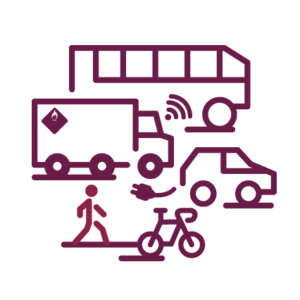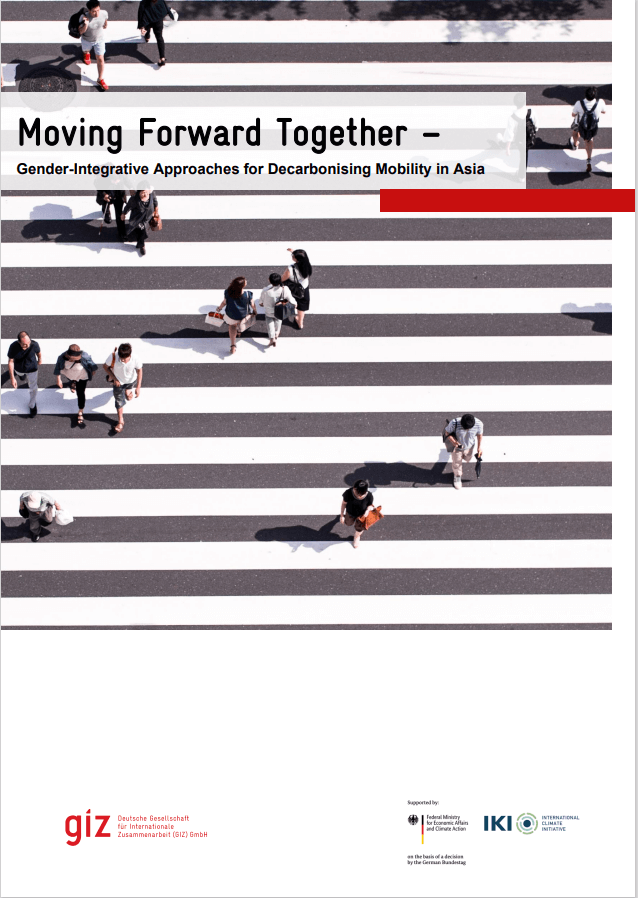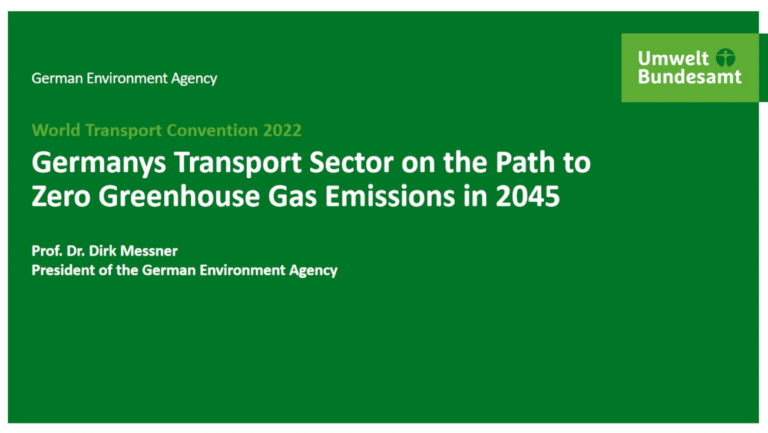The China Transport Sector Policy Briefing is a format that aims to provide news on the latest policies in the Chinese transport and mobility sector. Compiled by the GIZ China Mobility Team, it will on a regular basis provide insights into changes and plans in China’s regulatory landscape in the fields of mobility & infrastructure, environment & climate, as well as industry & technology. Ultimately, this format is meant to inform and fuel dialogue on developments in the transport and mobility sector of China and can be used by everyone interested in the Chinese transport and mobility sector.
All content has been prepared with the greatest possible care and is provided in good faith. The assumptions, views, and opinions expressed in this article do not necessarily reflect the official policy or position of Deutsche Gesellschaft für Internationale Zusammenarbeit (GIZ) GmbH
1. 14th Five-Year Plan approved: The detailed guideline for China’s economic and social development from 2021 to 2025 highlights the central role of science, technology and innovation for the country’s development and security. It aims at establishing an advanced manufacturing industry and supporting strategic emerging industries, which include electro-mobility and intelligent and connected vehicles. The plan further announces the development of a modern comprehensive transportation system and the establishment of an environmental governance system which comprises green certification standards and emission permits for all sources of pollution.
2. Main development goals for 2021 defined: The Government Work Report 2021 was published at the end of China’s annual two top-level planning sessions in March and reiterates many points from the Five-Year Plan. For this fiscal year, it targets a further improvement in the environment and reduction in the discharge of major pollutants. It announces reforms of the production permit system in several industries such as automobile, electronic and electric appliances, and encourages international cooperation in the field of science and technology, while emphasizing the protection of intellectual property. Moreover, in order to expand domestic consumption, the building of more car parks and electric vehicle battery charging and swapping facilities has been announced, together with the abolition of excessive restrictions on sales of second-hand vehicles.
█ Mobility & Infrastructure
3. Top-level plan announces integrated and smart transport model: The National Comprehensive Three-dimensional Transportation Network Planning Outline, issued on Feb 24, lays the foundation of China’s ambition to transform towards an integrated, intelligent, quality- and efficiency-centred transport model with deep integration of the transport, information and energy sectors, and covering land, water and air transport modes and the international transport and logistics systems.
4. 50 million kilometres of highway for rural China until 2035: The middle and long-term strategy to promote rural highway development aims to improve connectivity and quality of transport in rural parts of China. It focuses on the construction of highways (50 million km by 2035), convenient public transport funded by local governments and shuttle services to urban areas.
5. Ministry presents draft for road testing of autonomous cars: According to the draft for discussion published in January, Chinese provincial and municipal governments shall select representative test roads and areas, including highways, in their administrative regions, in order to start road tests and demonstration projects of intelligent and connected vehicles. Vehicles applying for demonstration are supposed to have been tested on the applied area for at least 240 hours or 1000 km. The draft has been revised by industry organizations and key enterprises.
6. Climate & EnvironmentTransport integral part of environmentally friendly and low-carbon development of China’s economy: A guideline published on Feb 22 by the Chinese State Council calls for a greener transformation in manufacturing, circulation, consumption and infrastructure. In the logistics sector, intermodal transport shall be promoted for the modes of rail-to-ship, highway-to-rail, and highway-to-ship. For the transport sector, greener technologies shall be considered, and the construction of charging infrastructure and facilities at hydrogen fuel stations will be enhanced.
7. Higher fuel consumption limits for passenger cars: The State Administration of Market Regulation updated and released jointly with the Standardization Administration a new national standard for fuel consumption limits for passenger cars. While the previous standard was based on various weight categories, the new one applies a linear factor and allows slightly higher limits. The new standard, which will take effect on 1 July 2021, is applicable to vehicles fueled with gasoline or diesel and with a max. mass of or below 3,500 kg.
8. New white list for traction battery recycling companies: In a bid to further shift traction battery recycling out of the informal into the formal sector, the Chinese government released the updated list of companies which meet specific environmental and process requirements for traction battery recycling. It sets a quality benchmark for companies who want to engage in the sector of recycling and reuse of waste traction batteries. The list of requirements is currently not binding and the white list is thus not limiting. The new list includes 22 companies, while the first one, issued in 2018, included only 5 companies.
█ Industry and Technology
9. Ministry of Commerce promotes automobile consumption: Although car sales in China have been performing well in the recent months, the Chinese Ministry of Commerce issued a guideline in February that announces detailed measures for further boosting demand for new and second-hand vehicles. It proposes to adjust the restriction on license plates in place in some major cities, to provide funds to consumers from rural regions, and it summarizes experiences from different regions.
10. Standards for intelligent transportation will be defined: Three Ministries have jointly issued the “Guidelines for the Construction of National Internet of Vehicles Industry Standard System (Related to Intelligent Transportation)”, which propose that by the end of 2022, more than 20 standards for intelligent transportation will be formulated and revised. Furthermore, a standard system supporting the implementation and industrial development of Internet of Vehicles will be initially established.
11. Shanghai aims at producing 1.2 million electric vehicles each year: The five year development plan to boost the city’s EV industry was published in February and announces the target of local annual production of over 1.2 million EVs. It further sets concrete targets for the EV proportion of vehicle sales, ranging from at least 50 % for individually bought new vehicles to 100 % for buses, taxis and official government vehicles. Besides, the total number of fuel cell vehicles should exceed more than 10,000 vehicles, and more than 70 hydrogen refueling stations shall be built and put into use.
More issues can be found here:
China Transport Policy Briefing – 2021, Issue 2
China Transport Policy Briefing – 2021, Issue 3




